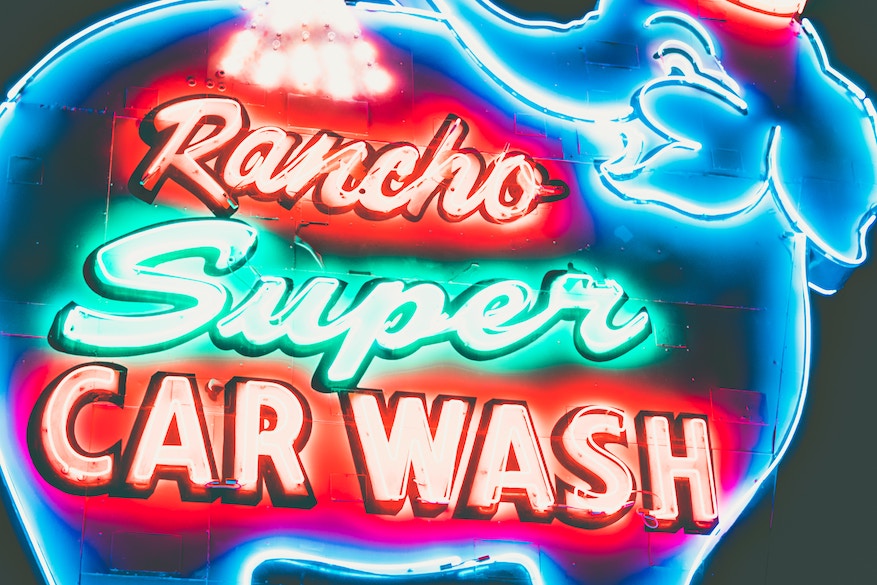
May 15, 2018 The subtle art of getting 25 percent off a new car
I bought a new car recently.
There’s just something about that new-car smell…
We ended up picking up a Range Rover Evoque. Really nice car – I’m really digging it. More importantly, though, my wife absolutely loves it.
In the grand scheme of things, a car’s a hefty purchase.
Next to a house, it’s a big one, particularly if the bulk of the finance is coming from your savings.
I’ve always tended to go (slightly) second-hand. By that I mean one to two years old, low kilometres – you know, all the clichéd stuff.
The reason why is that, given the original owner wears the steepest percentage on the depreciation curve, you’re basically getting a new car at a big discount and it’s highly likely that the engine will still be wearing in.
Interestingly, though, this time round I decided to throw going new into the mix. My thinking? Well, I thought if I could get 20 percent off a new car, it’d be a no-brainer.
While my bargaining skills copped a bit of a bruising along the way, I ended getting exactly that.
Well, slightly more, actually: 24.5 percent off.
In the interests of full disclosure, part of that was an 8.5 percent runout deal, which included stamp duty, comprehensive third party, rego and a five-year servicing offer. The remaining 16 percent came from pure negotiation, thanks largely to doing my homework and having a strategy.
Here are few key takeaways to share from the whole experience of getting 25 percent off a new car…
Secure your own financing first
This helps you avoid a lot of drama.
Whether you’re digging into your savings, have approval for a personal loan or a mix of both, approaching a dealership (or a private sale) locked and loaded gives you greater confidence when haggling over price.
In other words, it gives you a psychological upper hand. It also ensures you’ve established your budgetary ceiling. Meaning, it helps you avoid getting caught up in the moment and the emotion of buying a big-ticket item, and stretching your budget.
The three-dealership rule
This one was recommended to me by a mate of mine – one that updates his family’s two cars every two to three years.
His advice was to choose the three closest dealerships to where we live, starting with the furthest away, then working your way closer to home. All in one day, preferably.
The logic is that, by the time you’ve visited all three, you’ll know which dealership will likely to bend on price and, importantly, when you do fire the gun, you won’t have to travel too far to get your car serviced. Smart!
Getting a feel for the price range
This applies more to buying secondhand, which we were definitely leaning towards along the way before landing the discounted Evoque.
My advice? Make carsales.com.au and redbook.com.au your best friends. They’re great resources. By researching both, you’ll quickly work out a price range on a particular model (against the kilometre range you’re looking at).
That way, you’ll know if a particular example you’re looking at is overvalued, undervalued or right on the average. Ultimately, it helps you quickly ascertain where you’re at on the bargaining spectrum.
Always be polite
Even if you think the salesperson’s a bit of a douche, keep your emotions in check.
No matter how much they slip into cliched, slimy ‘sales pitch’ mode, always be polite and avoid coming across as too aggressive when bargaining.
Your best bet’s to be down to earth, assertive and I’ll even go so far as saying subtly using their whole ‘being your best’ mate tactic against them – reverse psychology, if you will.
Keep an ace up your sleeve
My actual pitch was pretty simple: I’d weave in the notion that I was negotiating with a handful of dealerships – and in a nonchalant way like I could take it or leave it.
I also gave each a dealer timeframe of three days to wrap up the purchase. In hindsight, this was key, actually, as it forced their respective hands into haggling to win the deal or lose the deal.
The other thing to mention was that, if I felt like we were at a bit of an impasse at all, I’d just politely but assertively say, “I’m walking away”. In the end, it worked.
Lastly, do your own research
This one’s a given, but due diligence is everything.
To give you some idea, I spent about four to five weeks in the lead-up researching and shortlisting models, even going so far as to do a couple of quick mock rehearsals with my wife – who, for the record, would make a gun car salesperson.
The more research you do, the more confident you’ll feel when it comes to the crunch of trying to talk a salesperson down.
If you’re in the market for a car today and want to know how the dealers reacted to my strategies, just hit me up michael@oranewealth.com.au
Disclaimer: all information contained within this article is of a general nature. It does not take into consideration your personal financial circumstances. Please consult a professional financial adviser (just like us 🙂 ) when making a financial decision.






Gary Pope
Posted at 14:54h, 15 MayNice strategy, and teriffic outcome! Onya Michael!
Retiring a millionaire isn’t quite what it used to be - Orange Wealth
Posted at 14:42h, 27 September[…] in the ’80s and ’90s, the thought of winning Lotto conjured up thoughts of like ‘buying a Porsche and never having to work […]
How to use debt | Why it’s not all bad - Orange Wealth
Posted at 16:50h, 27 September[…] Borrowing for a car […]